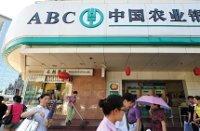The International Monetary Fund (IMF) has reinvented itself as a new, user-friendly, more politically sensitive organisation.
Latest articles from Banker Editor

Agricultural Bank of China still targets world's largest IPO
July 28, 2010Agricultural Bank of China could well achieve a record IPO despite a modest market debut
Agricultural Bank of China's initial public offering (IPO) - which the bank hopes will be the world's largest - has raised $19.3bn so far from investors from its listings in Hong Kong and Shanghai. If the bank exercises its overallotment options, this would take it over the $22bn mark, just above fellow Chinese bank ICBC's listing in 2006, which is the world's largest IPO to date.
Is Nigeria on track to realise its rich potential?
July 28, 2010Fixing its banks and power shortages would go a long way towards setting Nigeria on a sustainable growth path. The government has recently taken two steps in the right direction.
Regulators ignore hard facts to pick off easy prey
July 28, 2010Banks failed in the recent crisis because they lent money to the wrong people - sometimes done by way of complicated structures but bad credits all the same - and because they were undercapitalised.
Reducing trade imbalance is in China's interest
July 6, 2010To the average member of the US Congress, the world is a simple place - if China can be pushed to let the renminbi float free or at least be revalued, the US trade deficit with China will disappear and US manufacturing jobs will magically reappear.
India must face harsh reality over consolidation
July 6, 2010India's banking sector has long been considered a laggard in relation to the country's hugely successful economy, and this year's Top 1000 Banks ranking shines a new and unflattering light on the true extent of India's malaise.
BIS ratios point to recovery but NPL worries linger
July 6, 2010Signs of a general recovery in banking include the facts incurring losses are not recording them on the same scale as last year and that even the lowest Bank for International Settlement (BIS) capital ratios are higher than in 2009. The worst non-performing loan (NPL) percentages, on the other hand, are higher, suggesting that there is more pain to come.


